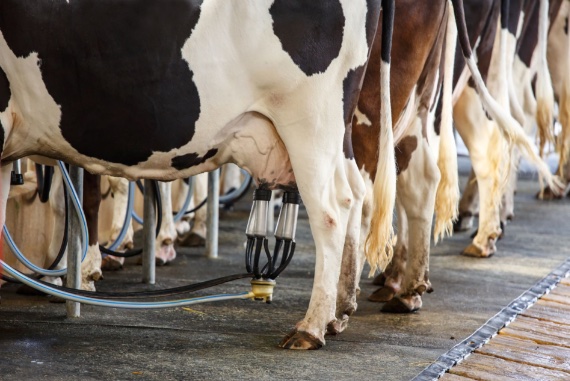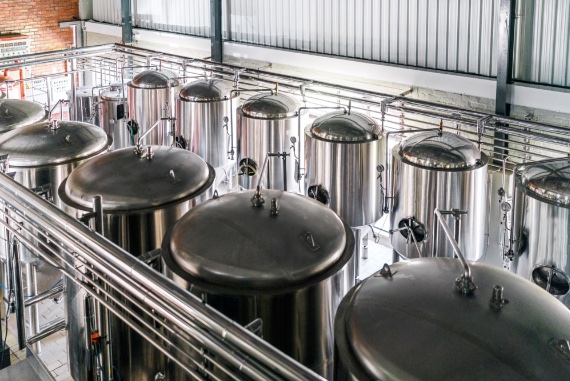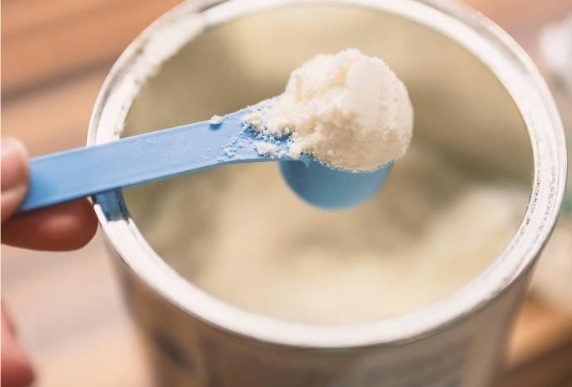More than 80% of the world’s population regularly consumes milk and/or other dairy products—in most cases on a daily basis. Milk is an essential commodity, especially for communities where owning an animal capable of providing milk remains a blessing, perpetuating a dependency whose origins date back to at least the early Neolithic era, according to the latest findings.
At the same time, the dairy sector is responsible for about 3.4% of global greenhouse gas emissions, while cattle and other ruminants produce around 37% of human induced emissions of methane (a greenhouse gas 28 times more potent than CO2). The production of milk also requires enormous amounts of water and land, not to mention the issue of animal welfare.
Faced with these two antagonistic and at first sight difficult to reconcile circumstances, synthetic milk has emerged as the ideal alternative, driven by the rise of fermentation biotechnologies in recent decades.
Until now, the only way to enjoy sustainable consumption without giving up milk was to switch to the well-known plant-based milk alternatives. However, despite their growing acceptance, they are a rather imperfect solution to both of the above circumstances. On the one hand, soya, oat, rice and almond milk arouse the ire of environmental groups, as many of them are made from genetically modified plants; moreover, they are water-intensive crops and encourage monoculture, which impoverishes the soil and thus biodiversity. On the other hand, from a nutritional point of view, they are no match for animal milk. And finally, the organoleptic experience of milk alternatives is not at all comparable when it comes to taste and creaminess.
Precision fermentation to produce “complete” foods
Can synthetic milk overcome these shortcomings of plant-based drinks? From a biochemical point of view, synthetic milk is identical to animal milk, as it is produced by the same genes. However, instead of being made inside the mammalian organism, it is manufactured in bioreactors using a biotechnological process known as “precision fermentation“. This technique uses genetically modified microorganisms, into which the genes responsible for the synthesis of milk proteins have been inserted (thanks to gene editing methods such as CRISPR).

These microorganisms are introduced into a bioreactor together with an aqueous solution loaded with sugars, minerals and vitamins and under ideal conditions of pressure, temperature, oxygen concentration and agitation for the microorganisms to proliferate and transform the sugars in the medium into the desired proteins. Once all the sugars have been exhausted, the resulting proteins are filtered and purified: this is how the key ingredients of animal milk, responsible for its nutritional value and texture, are obtained.
Finally, fats, minerals, sugars and flavourings are added to this base to obtain the final product. In this way, according to its proponents, synthetic milk is guaranteed to have the same taste, texture and nutritional value as natural milk, but with the added advantage that it is a milk that can be easily customised to reduce health problems potentially linked to dairy consumption, such as high cholesterol levels or lactose intolerance.
The truth is that precision fermentation is not really a novelty, as the technology has been employed for several decades in other sectors such as the pharmaceutical industry to produce insulin and antibiotics. Even in the food industry, it has been used to produce vitamins and flavourings that are added to foodstuffs, a prior history that demonstrates the safety and innocuousness of the technique. However, it is only now that precision fermentation has taken the leap to produce “complete” synthetic foods, of which milk is only the first; others such as egg white, collagen and honey, which are the subject of multi-million-dollar investments, have already been announced in its wake.
The hidden face of scaling up production
Thus far, this story presenting synthetic milk as a suitable alternative boils down to a catalogue of advantages and opportunities, as might be presented to potential investors exploring new business opportunities. But what about the realities of taking the process from the lab to large-scale production? This is where the uncertainties arise, which would no doubt have been raised by those who are now investing in these new emerging food biotechnologies based on the Silicon Valley startup model.
Consumers, especially after the experiences of the last two decades with products and services arising from the new information technologies, will undoubtedly need to ask themselves some questions. Names such as Amazon or Uber, disruptive transformers of their respective sectors, are reason enough to make us reflect on the challenges of ideas such as synthetic milk and also on their potential downsides, both legal and social, economic and environmental.
What will be the environmental cost of building all the facilities needed to replace traditional dairy production, and the consumption of energy and resources such as water that these fermentation plants will require? It’s one thing if the environmental impact of synthetic milk from a lab is less than that from a dairy farm, but full-scale production requires large spaces and enormous amounts of concrete and plastic, as well as high electricity consumption to keep the micro-organisms alive and working to produce milk.

What is the energy efficiency of such a large-scale process? Then there are the nutrients needed by these micro-organisms (their procurement will have an impact, as does the current need for pasture for livestock), the wastes produced by precision fermentation (and how they will be treated), and the environmental risks posed by both the micro-organisms themselves and those wastes if they are released into the natural environment.
There are also intellectual property factors at play. While conventional milk is an open heritage of mankind (producing a multitude of foods from the milk of cattle), its synthetic cousin would become something jealously guarded by patents, which would be fought over by the large biotech multinationals involved in its production. Without access to these patents, there would be no small local producers, such as those in the traditional dairy sector. What would coexistence/competition with the new synthetic milk industry be like and how would it affect the millions of people who now depend on dairy production?
The real impact on the consumer
Consumer support does not seem guaranteed either. Although in the US synthetic milks would not be labelled as GM—as they don’t contain genetically modified organisms, but are produced by them—in Europe their labelling and regulation is still up in the air. Then there are, for example, the heated debates and controversy surrounding infant milk formula, which is, in effect, the first commercial step towards synthetic milk.

Time will resolve these unknowns, because it seems only a matter of time before synthetic milk lands on supermarket shelves. This is not a science fiction story. In the US, the Perfect Day company already manufactures proteins obtained by precision fermentation, which are then used to produce ice cream, protein shakes and milk. In Australia, Eden Brew is already promoting the imminent launch of its range of alternative dairy products. And in both cases, their marketing targets consumers concerned about sustainability and climate change.
Milena Bojovic, a social science researcher at Australia’s Macquarie University who specialises in studying the future of the dairy sector, argues that synthetic milk is not a panacea. Despite its enormous potential, she warns that we must be vigilant not to fall into the same mistakes of the current food system. She predicts that initially its impact will be mainly on powdered milk. “If synthetic milk really takes off, the biggest disruption I think will be if it can be powdered and used in the ingredients space . . . as an additive like milk solids, which is in a lot of processed foods,” says Bojovic. “I don’t think most consumers are questioning where the milk solids in their KitKat came from.”
Comments on this publication